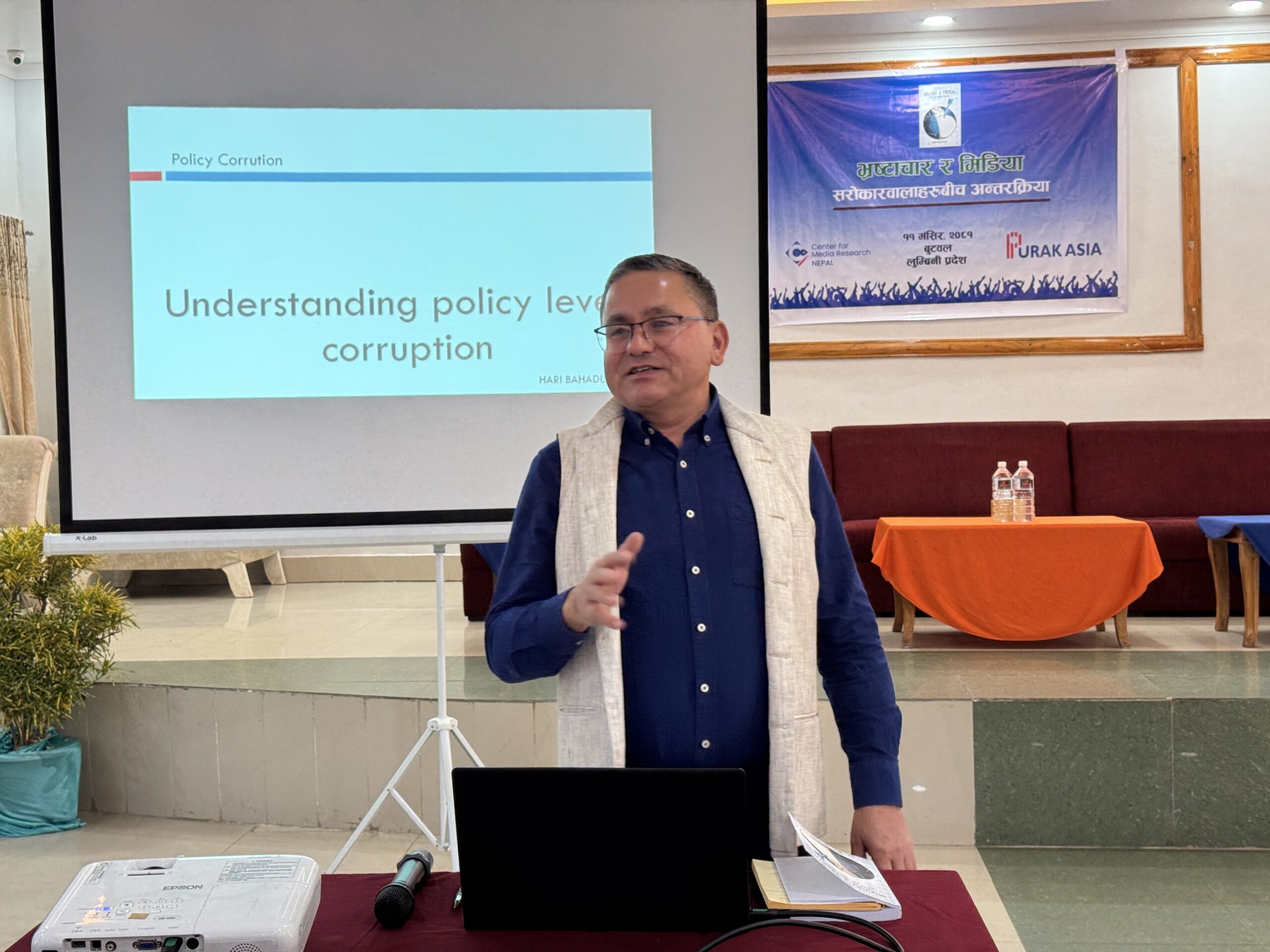The Center for Media Research – Nepal (CMR-Nepal) organized a discussion around its new publication “Corruption and Media” in Butwal, Lumbini Province on November 26, 2024.
Stakeholders emphasized that media could play a crucial role in controlling corruption by focusing on investigative journalism. They argued that the media should expose corruption incidents and systemic issues across various state bodies, including federal, provincial, and local governments, public institutions, and political parties.
Experts highlighted the growing trend of corruption through policy decisions in recent times. They suggested that the media can contribute to anti-corruption efforts by:
- Raising public awareness about corruption
- Exploring the causes and consequences of corrupt practices
- Proposing potential solutions
- Exposing specific corruption incidents
The participants stressed that the media should act as the ‘fourth pillar’ of the state by:
- Monitoring corruption across all sectors of society
- Promoting institutional integrity
- Engaging citizens in anti-corruption efforts
During the program, senior journalist Hari Bahadur Thapa presented a historical perspective on corruption in Nepal. He noted that during the Rana regime and the Panchayat period, corruption was widespread but remained hidden due to restrictive political conditions and the lack of an independent media. In contrast, after the restoration of democracy, independent media began uncovering major corruption scandals.
Tilak Pathak, Executive Director of CMR Nepal, pointed out a critical challenge. Despite the introduction of numerous legal provisions and anti-corruption structures following the restoration of democracy, corruption remains persistent. He observed that while media exposure brings corruption scandals to light, public attention often wanes quickly due to inadequate follow-up and monitoring.
Pathak emphasized the need for media to remain constantly vigilant. While acknowledging the prevalence of incident-based corruption news, he called for more in-depth investigative reporting to sustain public awareness and pressure for systemic change.
The event was attended by Lumbini Provincial Assembly members, journalists, civil society representatives, legal professionals, and intellectuals.


